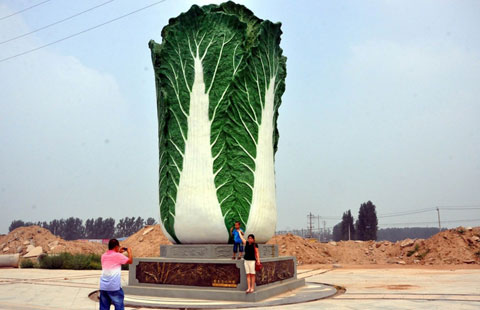Experts slam Japan's bid to break order
Updated: 2014-07-28 07:35
By Xinhua (China Daily)
|
|||||||||||
Japan's claim over China's Diaoyu Islands is yet another attempt to break the international order established after World War II, and it is proof of the Japanese right wing's ambitions to rebuild the country as a military power, experts said on Saturday.
Wu Enyuan, a researcher at the Chinese Academy of Social Sciences, said Japanese right-wingers have for decades attempted to deny the order established after the last war.
"These attempts may produce new destabilizing factors for the Asian-Pacific region and the international order," he said at a global conference on World War I and World War II in Beijing.
The conference gathered scholars from the United States, Russia, Serbia, Germany, Japan and other countries. Wu told them their countries should stay alert to Japan's military ambitions.
His words came a day after China marked the 120th anniversary of the start of the first Sino-Japanese war in 1894.
On July 25, 1894, Japanese warships attacked two Chinese vessels off the Korean port of Asan. At the time, Korea was a tributary state of the Qing Dynasty (1644-1911). By March 1895, the Chinese army and navy were routed, the first time China had lost to Japan in a military conflict.
The Shimonoseki Treaty, signed to conclude the war, ceded the Liaodong Peninsula in northeast China, Taiwan and its annex, including the Diaoyu Islands, to Japan. The Qing court also paid Japan 200 million taels of silver (equivalent to $5.2 billion today).
The Cairo Declaration issued in 1943 by China, the US and Britain said "all the territories Japan has stolen from the Chinese, such as Manchuria, Formosa, and Pescadores" shall be restored to the Chinese, and "Japan will also be expelled from all other territories she has taken by violence and greed".
Two years later, the Potsdam Proclamation reaffirmed that "the terms of the Cairo Declaration shall be carried out." The Japanese government accepted the Potsdam Proclamation in the Japanese Instrument of Surrender.
Although the Diaoyu Islands have been under Japan's administrative control since 1972, in the China-Japan joint statement issued in September 1972, the Japanese government promised to "earnestly implement Article 8 of the Potsdam Proclamation".
Zhou Yongsheng, a vice-director of China Foreign Affairs University's Japanese studies center, said:"In view of the Cairo Declaration and the Potsdam Proclamation and international laws, the Diaoyu Islands should be returned to China."
Zhou said Japan's right-wing politicians are attempting to break the post-World War II international order established by the Potsdam Proclamation, which he said is being neglected in Japan.
Japanese Prime Minister Shinzo Abe's administration recently endorsed a reinterpretation of the country's pacifist Constitution that gives the right to collective self-defense, paving the way for soldiers to be sent into battle overseas to defend Japan and "countries with close ties".
The move sparked major security worries among Japan's Asian neighbors.
Nakayama Toshio, a professor at the Clausewitz Society of Japan, said: "Abe's policies threaten the peace of Japan and could lead the country down a dangerous path."
(China Daily 07/28/2014 page4)
Today's Top News
TransAsia crash while landing in Taiwan
UK fraud office liaising with China on GSK bribery case
Death toll in Gaza mounts to 701
Meat supplier in global crisis
Dogs 'capable' of feeling jealousy
Five detained over stale meat scandal
5 more universities set up human rights centers
Rebels likely downed jet 'by mistake'
Hot Topics
Lunar probe , China growth forecasts, Emission rules get tougher, China seen through 'colored lens', International board,
Editor's Picks

|

|

|

|

|

|





